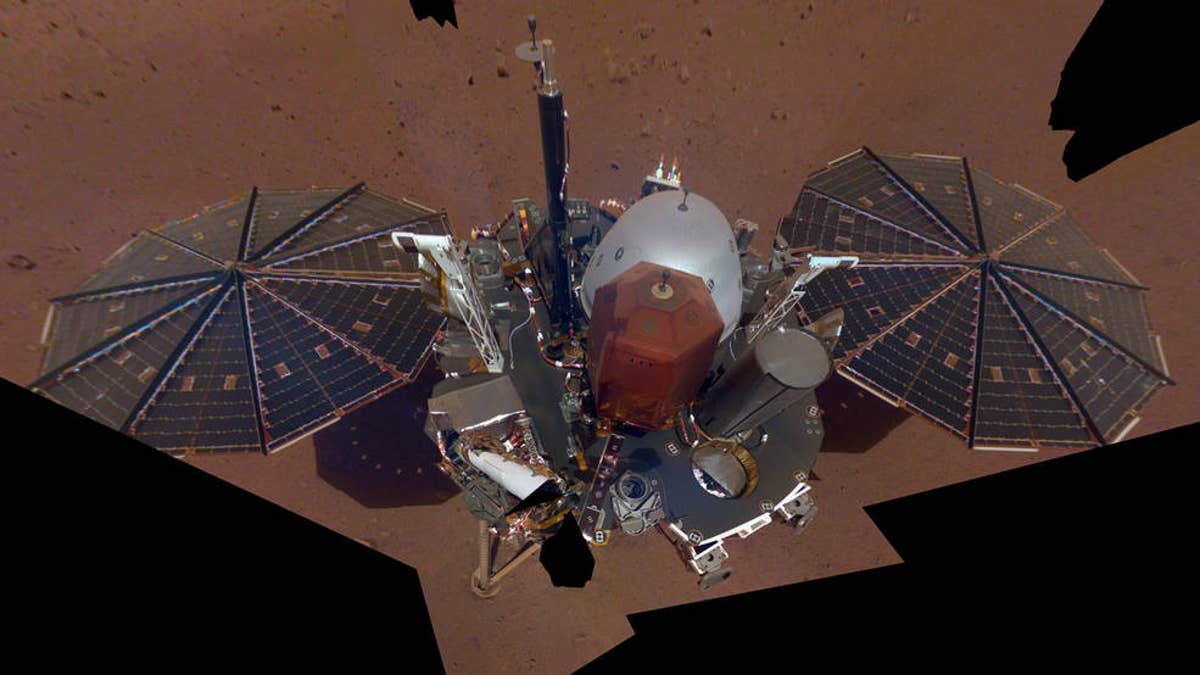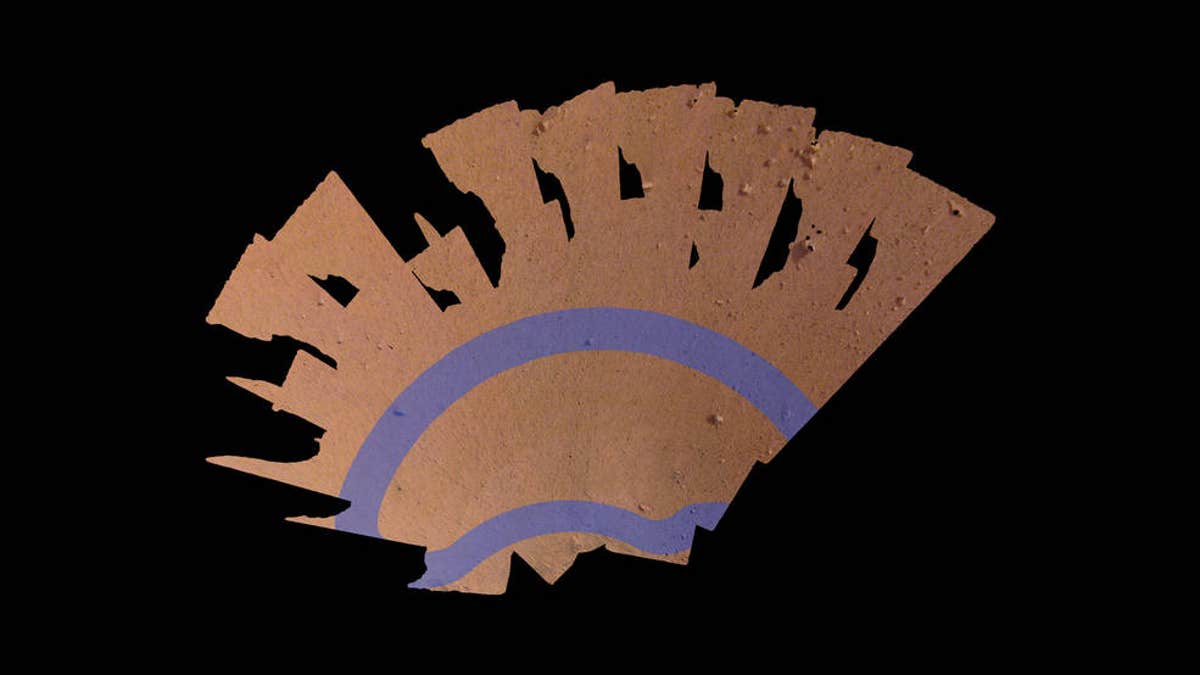
NASA InSight Lander has taken its first selfie on Mars. The "mosaic" is pieced together from 11 images. The selfie was taken on Dec. 6, 2018. (NASA/JPL-Caltech)
Say "cheese!" NASA’s InSight Mars Lander has snapped its first selfie from the surface of the Red Planet.
Using a camera on its robotic arm, the probe took a selfie that is actually a “mosaic” comprised of 11 images. The selfie was taken on Dec. 6.
In a statement, NASA explained that scientists have also got their first complete look at the Lander’s “workspace” – an approximately 14-by-7-foot crescent of terrain directly in front of the spacecraft.
NASA’S INSIGHT MARS LANDER ARRIVES ON THE RED PLANET, ENDS SUCCESSFUL JOURNEY
The InSight mission, which is managed by NASA’s Jet Propulsion Laboratory, will provide scientists with a wealth of data. By studying Mars’ deep interior, the mission is expected to provide valuable information on the formation of rocky worlds, including Earth.

A "mosaic" image, composed of 52 individual images from the InSight lander, shows the "workspace" where the spacecraft will set its science instruments. (NASA/JPL-Caltech)
"The near-absence of rocks, hills and holes means it'll be extremely safe for our instruments," said InSight's Principal Investigator Bruce Banerdt of NASA's Jet Propulsion Laboratory in Pasadena, California, in the statement. "This might seem like a pretty plain piece of ground if it weren't on Mars, but we're glad to see that."
The Mars InSight Lander reached the Red Planet on Nov. 26 after an epic journey of more than 300-million miles that lasted six months. Sensors on the Lander recently captured the first-ever “sounds” of Martian wind.
NASA RELEASES FIRST-EVER AUDIO RECORDING FROM MARS
The United States is the only country to successfully operate a spacecraft on the Martian surface. InSight represents NASA's ninth attempt to put a spacecraft on Mars; only one effort failed.
Mars looms ever larger in America’s space future.
Last month, NASA announced that it has selected the location where its Mars 2020 Rover will land on the Red Planet. The rover is expected to reach the Martian surface on Feb. 18, 2021.
NASA PICKS LANDING SPOT FOR MARS 2020 ROVER IN HUNT FOR ALIEN LIFE
NASA’s long-term goal is to send a manned mission to Mars in the 2030s. However, former astronaut Buzz Aldrin thinks that a slightly later target date of 2040 is more realistic. In an interview in 2016, the Gemini 12 and Apollo 11 astronaut told Fox News that by 2040, astronauts could have visited Mars’ moon Phobos, which could serve as a sort of stepping stone to the Red Planet.
Fox News’ Chris Ciaccia and The Associated Press contributed to this article.
Follow James Rogers on Twitter @jamesjrogers